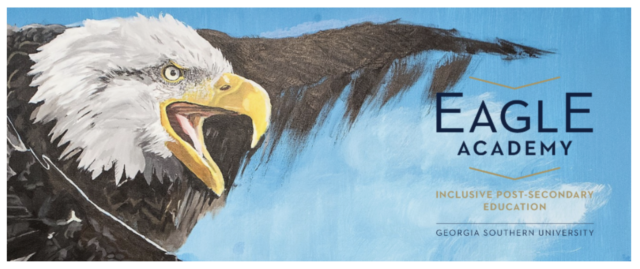For his first year of college last fall, Max Champion took half his classes online. This semester, he’s happy to be taking them all in person.
Champion, 20, is a student at the Equal Access to Gainful Learning and Employment (EAGLE) Academy at Georgia Southern University in Statesboro. EAGLE Academy is a two-year, Inclusive Post-Secondary Education (IPSE) program for students with intellectual/developmental disabilities (I/DD) interested in pursuing a college education while learning self-advocacy, independent living and career skills.
Champion now resides in an off-campus house with a friend he met through his fraternity. Champion said moving from the dorms into a house was another transition. “I had to put together pieces of furniture and stuff; it was a good experience,” he said.
There are eight IPSE programs in Georgia, and EAGLE Academy is one with a residential component. Following an application and interview process, students live on campus their first year.
There are currently six students in the program. They typically take 12 credit hours per semester. Peer mentors and graduate assistants work with them throughout their courses, and students leave with a certificate in an area of study they selected.
“We don’t have tracks for our students,” says Stephanie Devine, the executive director of EAGLE Academy. “We actually sit down with each person and set up an individual program of study.”
Students can choose a specialization from any college at Georgia Southern. In the past, students have been certified in child and family development, physiology and personal training and graphic design and multimedia.

EAGLE Academy’s inaugural class started in fall 2017. This May, five students graduated. Julie Pickens, EAGLE Academy’s program director, said every student in the most recent class is now either employed or pursuing technical education.
“Their last semester in the program, they do an internship that is about 20-25 hours a week,” said Pickens, who oversees day-to-day operations. “They’re spending a majority of their time out in the community doing an internship in their focus area.”
To cover costs, students can apply for financial aid in the form of Pell grants and federal work studies. This is possible because EAGLE is a Comprehensive Transition Program (CTP), a federal designation that also involves program rigor requirements. Additional funding support might be provided by the Georgia Vocational Rehabilitation Agency if students have an approved case with them.
Devine said her biggest focus at the moment is working to provide enough financial support for EAGLE students, and the program is looking into further grants, fundraising and scholarship opportunities.
Pickens said that COVID and statewide funding cuts in the last year have forced the EAGLE Academy to adapt, but the program and students have adjusted together.
“EAGLE Academy is an integral part of Georgia Southern,” said Pickens. “Our students are Georgia Southern students. Advocating for Georgia Southern is advocating for EAGLE Academy because they really are one and the same.”
Champion is excited to be back on campus this fall. He’s interested in marketing as a career, but he loves sports. This semester, he’s taking a class on supply chain management in sports organizations, a class on advanced living and an internship with the athletics department.
Champion said he would tell a new student, “Have a good time … If you need help, just let me know. We’ll go study together in the library.”
